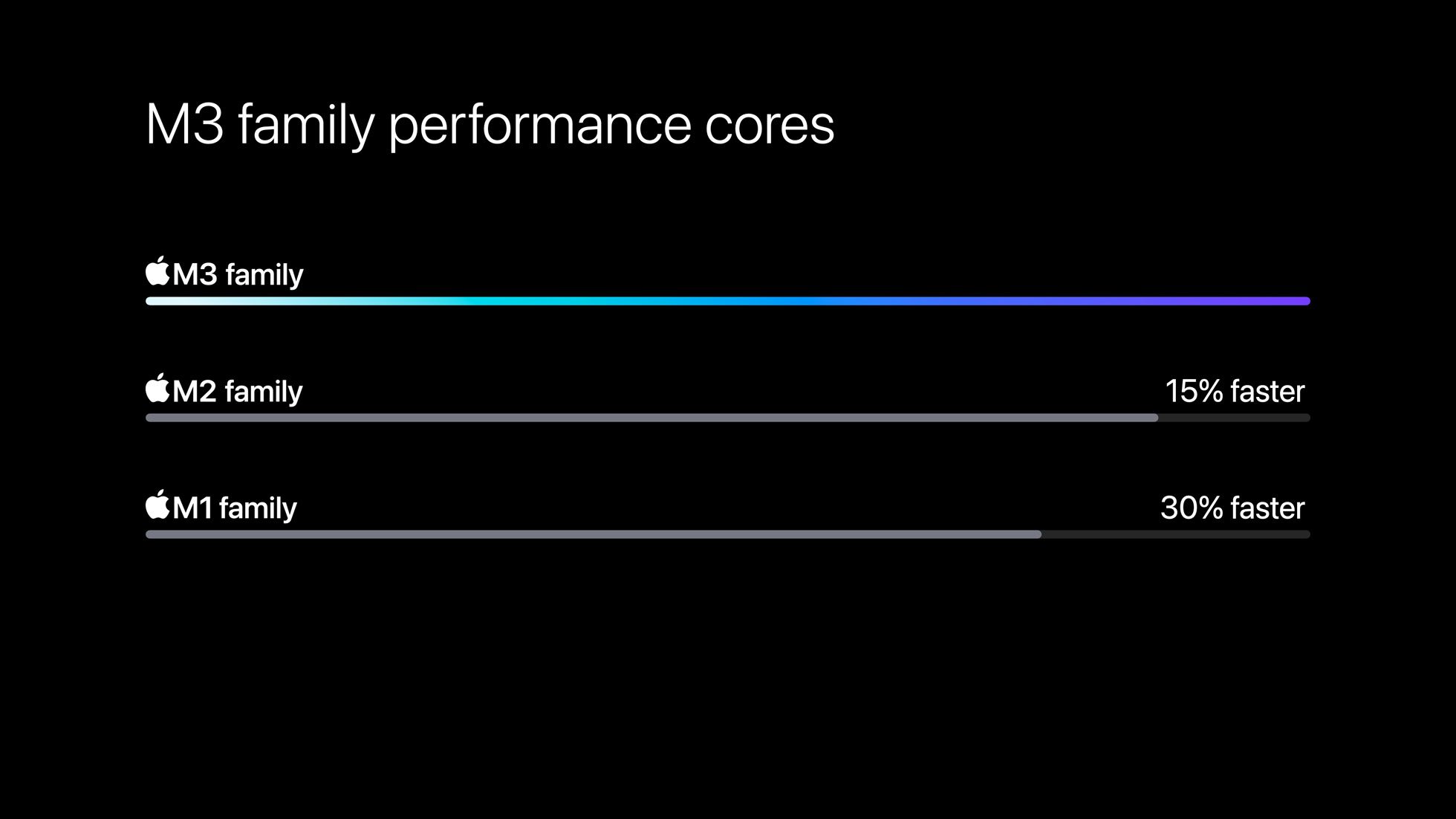
Introducing Apple's Revolutionary M3 Chips

Apple's groundbreaking M3 chips outshine the competition, dethroning Qualcomm's 'best desktop ARM chip' title in just six days
Apple's transition from Intel processors to its own ARM CPUs proved to be a bold and highly successful move. The new Mac computers are not only more efficient, but also rival the power of most x86 Windows CPUs and even surpass them in terms of performance. Apple is now taking their innovation a step further.
During their recent hardware event, Apple introduced the M3 series of chips that will drive the next generation of Mac computers in the coming months. This series includes the M3, M3 Pro, and M3 Max chips. Normally, Apple announces the base M-series chip first, followed by the Pro and Max variants for MacBook Pros and more powerful computers. However, this time, all three chips were unveiled simultaneously. It makes us wonder if this move is somehow related to Qualcomm's recent release of the Snapdragon X Elite, which they claim outperforms the M2 Max. By offering chips up to the M3 Max, Apple can maintain their bragging rights in terms of performance.
Apple
The chips themselves are manufactured using a cutting-edge 3nm process, which allows for a higher density of transistors in a smaller area. In the case of the M3 chip, it boasts an impressive 25 billion transistors, while the M3 Pro goes even further with 37 billion transistors. As for the pinnacle of the series, the M3 Max sets a new record with a staggering 92 billion transistors. Not only that, but the M3 series showcases a next-generation GPU that incorporates advanced features such as Dynamic Caching, hardware-accelerated ray tracing, and mesh shading. These enhancements enable a remarkable 2.5x faster rendering speed when compared to the M1 chips. Moreover, the CPU performance cores have been optimized to be 30% faster, while the efficiency cores have seen an impressive 50% increase in speed compared to the M1.
The Neural Engine delivers a noteworthy 60% increase in speed, facilitating AI workflows. Additionally, the new media engine enables AV1 decode for exceptional high-quality video streaming. Moreover, the unified memory architecture impressively supports a staggering 128GB, allowing for the possibility of a laptop with such substantial RAM.
Currently, Apple's M3 chips can be found in the latest 14-inch and 16-inch MacBook Pros and the new iMac. While the upgrade is expected to extend to other Mac models soon, specific details regarding the next devices to receive it have yet to be disclosed. Presently, the M2 chips are being utilized in the MacBook Air, iPad Air, iPad Pro, Mac Mini, Mac Studio, and Mac Pro.
Source: Apple
Editor's P/S
Apple's M3 chips represent a monumental leap forward in computing power and efficiency. With up to 92 billion transistors and a next-generation GPU, these chips deliver unrivaled performance for both professional and creative tasks. The fact that Apple was able to dethrone Qualcomm's 'best desktop ARM chip' title in just six days is a testament to the company's relentless pursuit of innovation.
As an Apple enthusiast, I am incredibly excited about the possibilities that the M3 chips unlock. Whether it's for video editing, 3D rendering, or simply browsing the web, these chips offer blazing-fast speed and unparalleled efficiency. I can't wait to see how developers and content creators take advantage of the M3's capabilities to bring new and innovative experiences to life.







